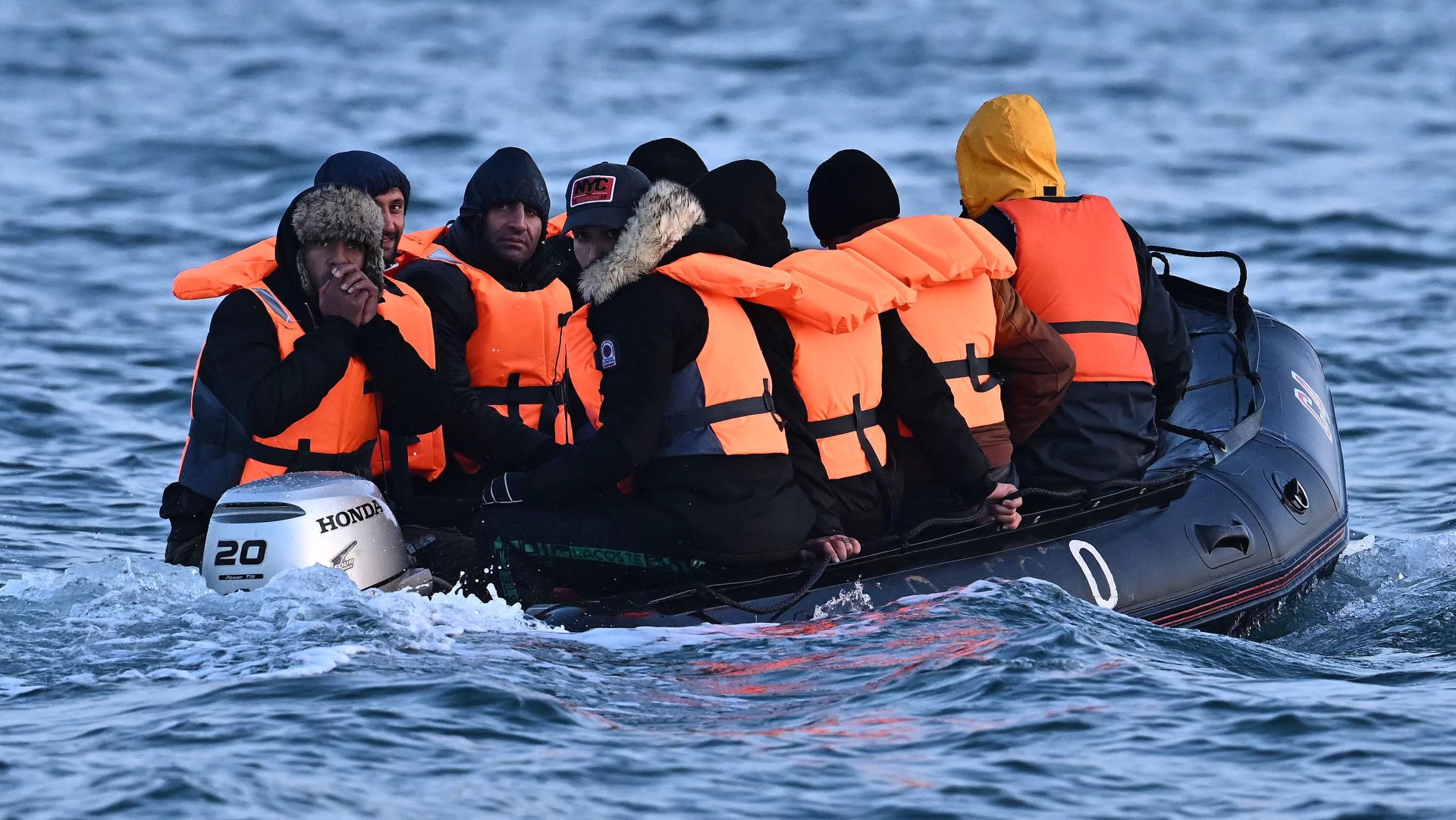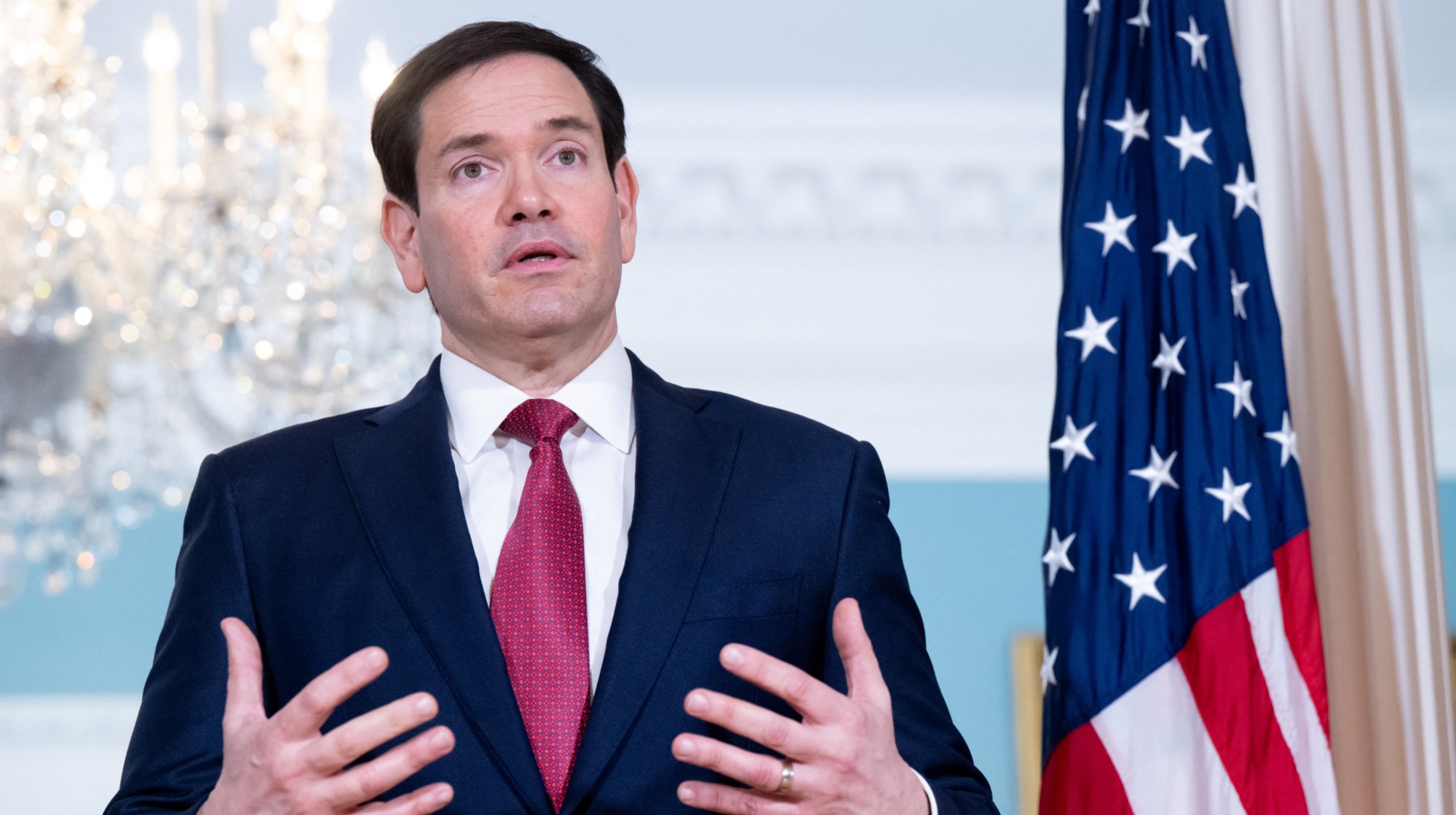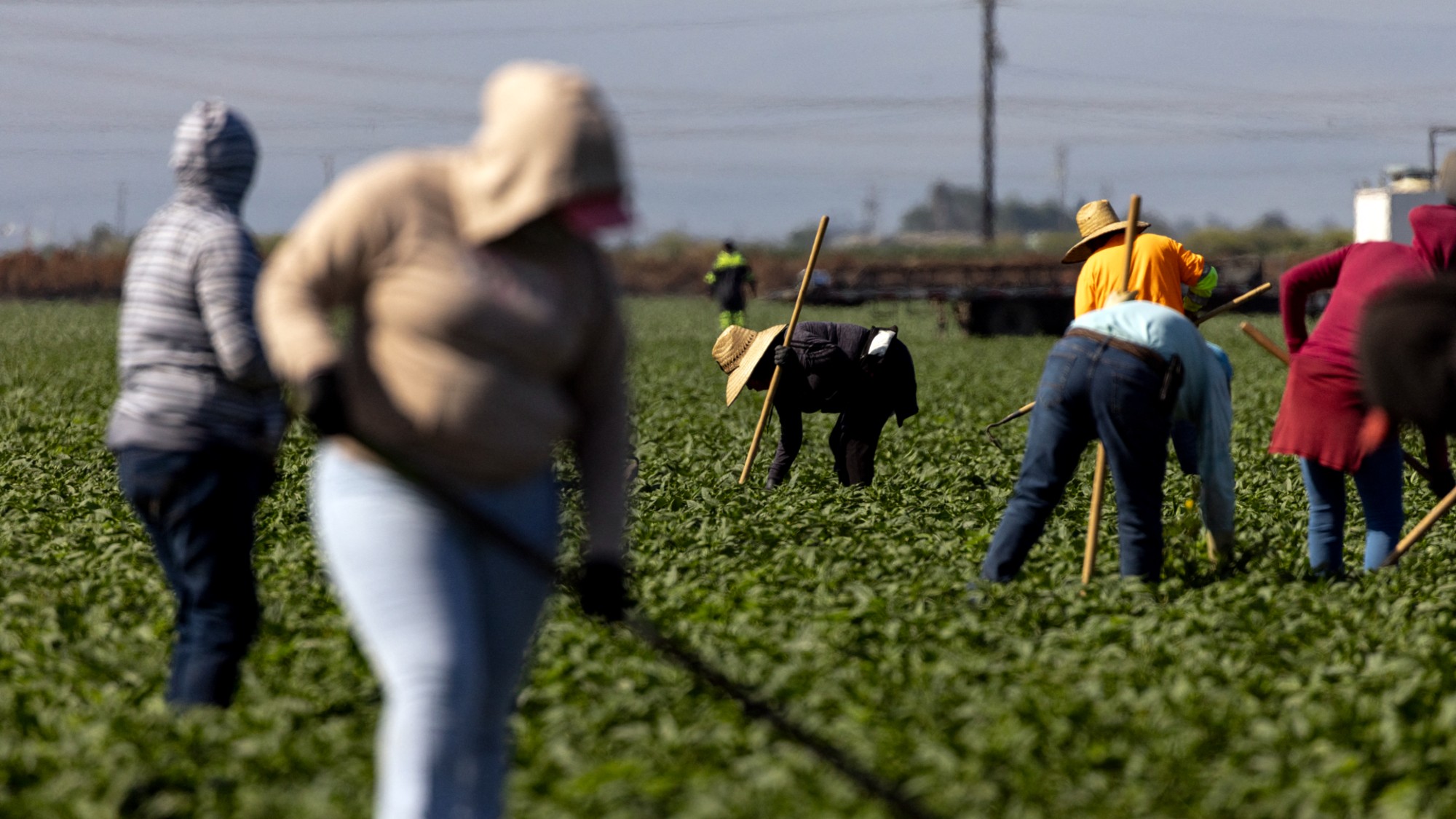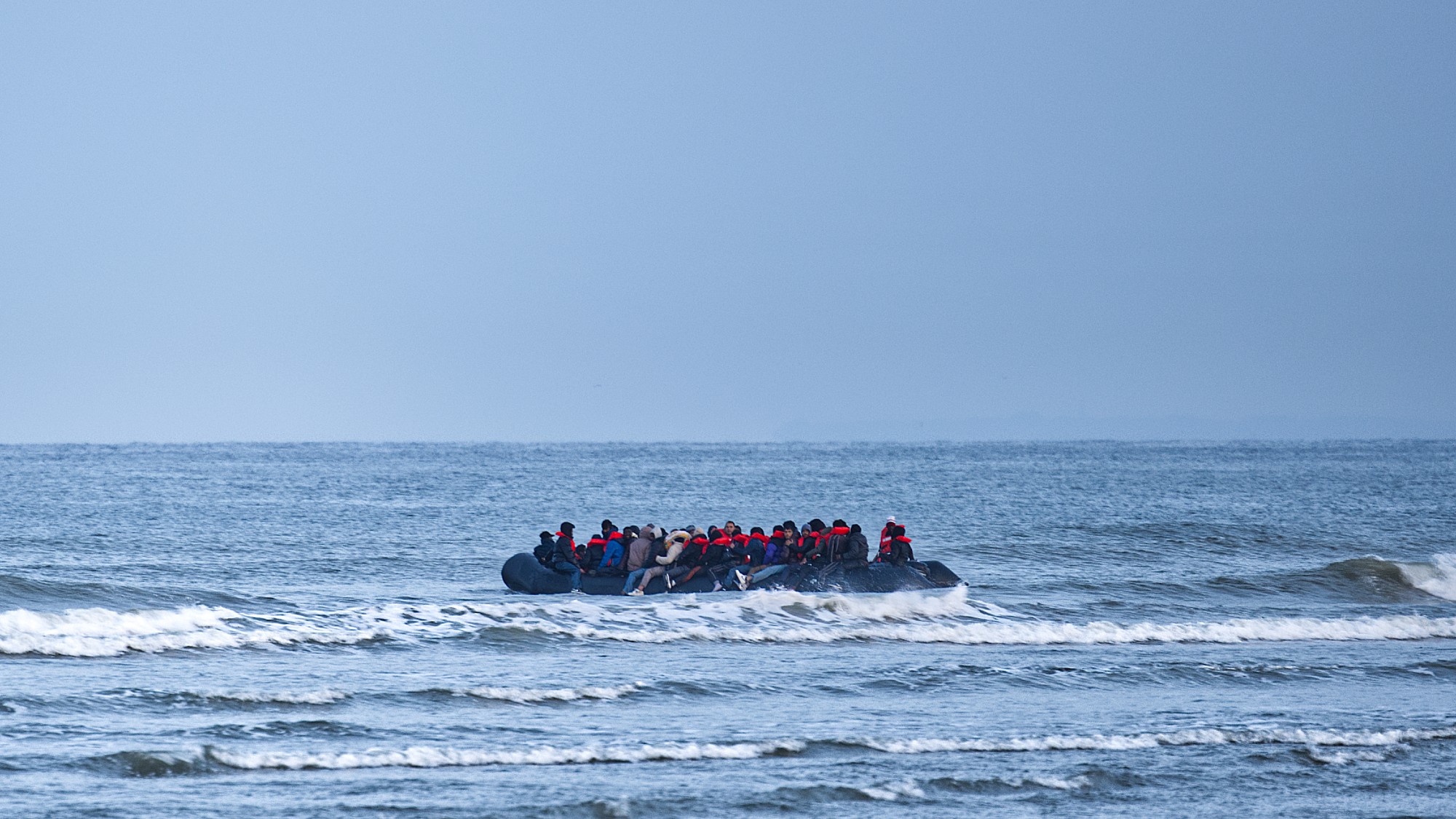Labour’s plans to tackle small boat migrant crossings examined
Opposition dismisses ‘gimmicks’ such as Rwanda scheme and asylum barges and sets out five-point plan to clean up Tory ‘mess’

A free daily email with the biggest news stories of the day – and the best features from TheWeek.com
You are now subscribed
Your newsletter sign-up was successful
Labour has said people smugglers are “running rings” around the government’s efforts to stem the tide of small boats crossing the Channel after six migrants died and more than 500 others arrived on UK shores on Saturday alone.
Stopping the small boats is one of Rishi Sunak’s five policy priorities. His landmark Illegal Migration Bill, which would bar nearly everyone who arrives in the UK by small boat and other illegal routes from seeking asylum and refugee protection in the UK, is “central” to the government’s plans, said the BBC.
While such tough migration measures are “divisive across the British electorate as a whole, they are wildly popular among many of the crucial swing voters in Tory seats where Sunak is struggling to cling on”, said Politico.
The Week
Escape your echo chamber. Get the facts behind the news, plus analysis from multiple perspectives.

Sign up for The Week's Free Newsletters
From our morning news briefing to a weekly Good News Newsletter, get the best of The Week delivered directly to your inbox.
From our morning news briefing to a weekly Good News Newsletter, get the best of The Week delivered directly to your inbox.
One former Conservative strategist told the news site the result of the next general election could be “blown wide open again” if the prime minister can actually get small boats arrivals falling. “People aren’t convinced about Labour,” they said.
What would Labour do differently?
The party has a “comprehensive plan” to end Channel crossings based on “common sense, hard graft and quiet diplomacy”, according to shadow immigration minister Stephen Kinnock on Labour List.
The five-step approach would involve Labour re-directing spending from the controversial Rwanda scheme to fund a new cross-border police unit in the National Crime Agency tasked with cracking down on smuggling gangs upstream. Second, the party would clear the asylum backlog – currently standing at over 170,000 – through fast-track processing and safe country returns, ending the use of hotels to house asylum seekers while their claims are being processed. It would also look to sign a new cooperation agreement with France and the EU to streamline family reunions and returns; reform safe and legal routes for refugees; and tackle humanitarian crises at source by helping refugees in their region.
Shadow home secretary Yvette Cooper said in March that a future Labour government would set itself the target of stopping all small boat crossings. And she told BBC Radio 4’s “Today” programme last week that it was far more important to “get a grip of the system” rather than pursue deterrence “gimmicks” such as the Rwanda scheme and asylum barges that may make headlines but have been shown not to work.
A free daily email with the biggest news stories of the day – and the best features from TheWeek.com
What about asylum barges?
“Part of the political strategy behind the Bibby Stockholm was to force Labour to take a position on this divisive election issue,” reported Sky News political correspondent Rob Powell.
The party appeared to rise to the bait last week, with Kinnock saying that while the use of such barges made him “deeply unhappy” they would still be used temporarily to house asylum seekers if Labour wins the next election, Metro reported. “We’ll be left with no choice but to deal with the mess we inherit,” he said.
Kinnock refused to give a timeline laying out when a Labour government would stop using the barges. However, the partial implosion of the policy – after 39 migrants were taken off the ship because of a legionella alert – shows the “potential dangers of this flavour of political triangulation”, said Powell, and will “likely fuel calls from the left of the party for the leadership to be bolder in speaking out on divisive so-called ‘wedge’ issues”.
And the Rwanda policy?
Like the Bibby Stockholm barge, the Rwanda scheme is “as much about symbolism as it is about practical solutions”, said Politico. Sunak and Home Secretary Suella Braverman are keen to send a message to would-be migrants – and to British voters – that they are getting tough on the issue.
At last year’s Labour conference, Cooper promised that her party would cancel the “deeply damaging, extortionately expensive, unworkable and unethical Rwanda plan”. But Labour has a “political tightrope to walk on the issue”, said Politico, with recent polling suggesting more of the public support the scheme than oppose it.
Labour’s proposals require “further detail and thought”, said The Law Society Gazette. Ultimately, it must “identify divergences from the Conservatives and other political parties and convince the public that a Labour government would prove more decisive on migration issues”.
Perhaps not, argued Anand Menon, director of the UK in a Changing Europe think tank. Despite its deep misgivings, Labour will not allow a significant policy gap to open up with the Conservatives on the issue, he claimed. It wants the election to be fought on competence rather than policy differences.
-
 How the FCC’s ‘equal time’ rule works
How the FCC’s ‘equal time’ rule worksIn the Spotlight The law is at the heart of the Colbert-CBS conflict
-
 What is the endgame in the DHS shutdown?
What is the endgame in the DHS shutdown?Today’s Big Question Democrats want to rein in ICE’s immigration crackdown
-
 ‘Poor time management isn’t just an inconvenience’
‘Poor time management isn’t just an inconvenience’Instant Opinion Opinion, comment and editorials of the day
-
 Reforming the House of Lords
Reforming the House of LordsThe Explainer Keir Starmer’s government regards reform of the House of Lords as ‘long overdue and essential’
-
 How long can Keir Starmer last as Labour leader?
How long can Keir Starmer last as Labour leader?Today's Big Question Pathway to a coup ‘still unclear’ even as potential challengers begin manoeuvring into position
-
 White House halts migrant visas for 75 countries
White House halts migrant visas for 75 countriesSpeed Read Brazil, Egypt, Russia, Iran and Somalia are among the nations on the list
-
 ‘All of these elements push survivors into silence’
‘All of these elements push survivors into silence’Instant Opinion Opinion, comment and editorials of the day
-
 ECHR: is Europe about to break with convention?
ECHR: is Europe about to break with convention?Today's Big Question European leaders to look at updating the 75-year-old treaty to help tackle the continent’s migrant wave
-
 The launch of Your Party: how it could work
The launch of Your Party: how it could workThe Explainer Despite landmark decisions made over the party’s makeup at their first conference, core frustrations are ‘likely to only intensify in the near-future’
-
 What does the fall in net migration mean for the UK?
What does the fall in net migration mean for the UK?Today’s Big Question With Labour and the Tories trying to ‘claim credit’ for lower figures, the ‘underlying picture is far less clear-cut’
-
 Asylum hotels: everything you need to know
Asylum hotels: everything you need to knowThe Explainer Using hotels to house asylum seekers has proved extremely unpopular. Why, and what can the government do about it?